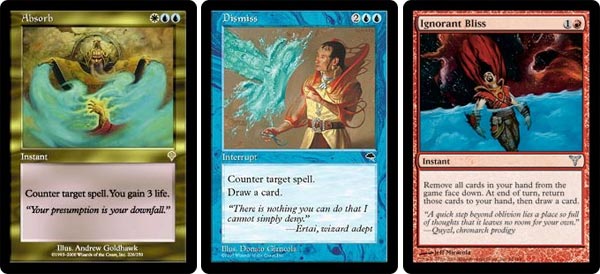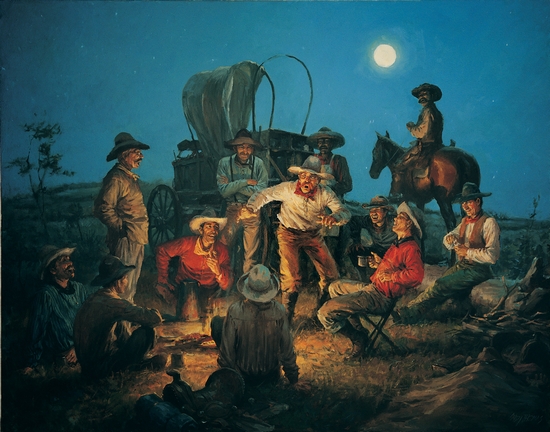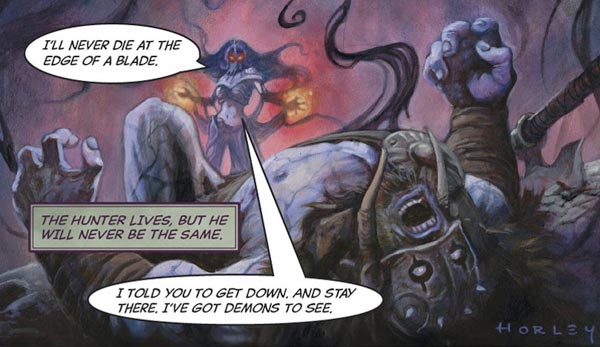It’s Wednesday, and that means two things: Vorthos snags the spotlight, and I’m going to destroy some undergraduates in trivia tonight.
 I could step the competition up to another place in Minneapolis, but the chicken wings are seriously delicious. It allows for a few hours of competition, something I’ve been sorely lacking after ending my competitive running career, and time to discuss the various Magic, most often Vorthos, issues of the day.
I could step the competition up to another place in Minneapolis, but the chicken wings are seriously delicious. It allows for a few hours of competition, something I’ve been sorely lacking after ending my competitive running career, and time to discuss the various Magic, most often Vorthos, issues of the day.
Today, I’ll be discussing who Vorthos writes for. I’ll make it easy for non-Vorthos players to simply:

I won’t be punishing today because Vorthos is all about the appreciation of the game as a whole. They aren’t focused on “all the aspects about the game outside of the game itself.” – Mark Rosewater
They convey their appreciation through writing.
1. They want to share their enjoyment with you.
2. They revel in appreciating the obscure.
3. They enjoy highlighting the highly intuitive cards.

1. They want to share their enjoyment with you.
Not only does Vorthos wish to convey their enjoyment of the game, they want engagement. To simply be heard and understood is taken for granted, and Vorthos (sub)consciously wants you to connect to them on their level.
What does this mean? Well, it means that Vorthos isn’t just the storyteller around a cowboy campfire.
A friend of the Vorthos at an FNM will discuss the game in depth: what was posted on the mothership, the major third-party websites, what is selling well on the secondary market, who is playing
From this very common experience, Vorthos must reach out to non-Vorthos people simply due to the low statistical probability of having an entire draft group being Vorthoses. They will forge a connection through a common admiration or appreciation of Vorthos elements that relate to the playgroup. (Keep in mind that Vorthos is a player. He is a Spike, Timmy, or Johnny already.)
A Vorthos/Johnny will write about how his personal constraints of soldiers only revealed a new interaction. This could turn into a Commander article that fits into the niche of saproling, angels, and other singleton decks. Color is secondary, but the connection of creature or storyline is what is important.
A Vorthos/Timmy will gush about his games. He lived through the excitement and the emotion of the match and lived to tell you about it. For older viewers, think if the Chapin/Nassif game would be explained by an overcaffeinated Patrick Chapin in theatrical terms. He couldn’t ignite enough of Nassif’s memories to win. (He won the match.)
A Vorthos/Spike will write about unearthing the most obscure, dominating the lesser Vorthos readers. Who is Karn? Child please. Name the page in Apocalypse and the Inquest magazine article that has Karn in a planeswalker depiction, and then we’ll talk real Vorthos. This subset doesn’t tend to write lengthy online articles, but the more prolific forum posters in the Vorthos areas tend to be Vorthos/Spikes. Proceed with caution, reader, as any change in storyline continuity will result in them delving into another side of this subset: the hatedom.

2. They revel in appreciating the obscure.
Ah, so this is where Spike fits in? To some extent, highlighting knowledge is a Vorthos pastime.
Oh, that character in the corner? Obviously it’s Baron Sengir; look at the widow’s peak.
">


























